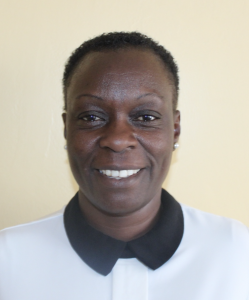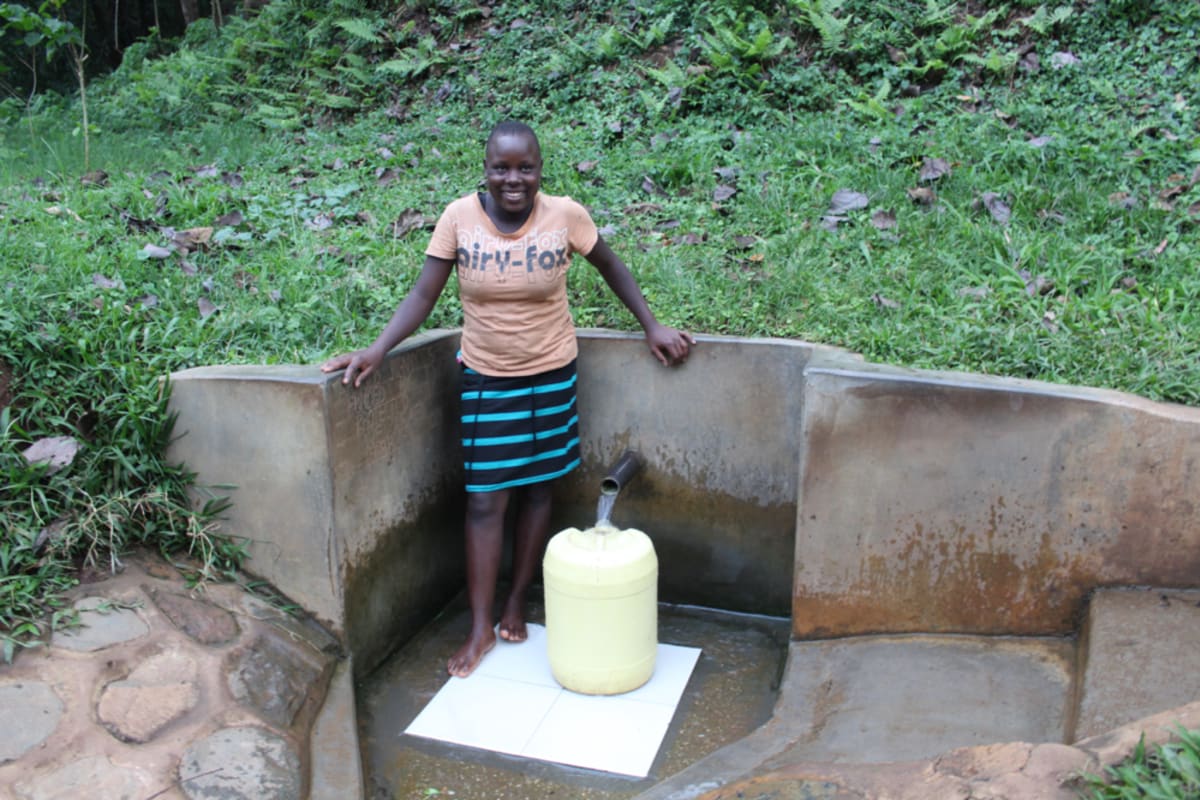Ilala Community is located in Kakamega County, Kenya. It is home to 490 people who do not have access to clean water.
They get water from a spring that has pooled to the surface. Arnold Johnny Spring is completely open to all forms of contamination, and wild animals even drink from it directly.
People bring their buckets along with a small jug that is dunked under the surface to collect and pour water from the spring into the bucket. This is a long process that further contaminates the water. Sometimes there is a long wait after someone fetches water to allow for dirt to settle back to the bottom.
Waterborne disease is prevalent throughout the community, and families are having to spend money on treatment. This rampant sickness has completely destroyed these households’ potential to save money and tackle development opportunities for themselves.
People here farm at a small scale, consuming most of their crop themselves while managing to sell a small excess in the local market. A good number of community members have tree lots on their pieces of land which serve as their source of firewood. Many people take the time to harvest more wood so that they can sell it to others. They also keep dairy cattle and poultry.
What we can do:
Training
Community members will attend hygiene and sanitation training for at least two days. This training will ensure participants have the knowledge they need about healthy practices and their importance. The facilitator plans to use PHAST (Participatory Hygiene and Sanitation Transformation), CLTS (Community-Led Total Sanitation), ABCD (Asset-Based Community Development), group discussions, handouts, and demonstrations at the spring. One of the most important topics we plan to cover is the handling, storage, and treatment of water. Having a clean water source will be extremely helpful, but it is useless if water gets contaminated by the time it’s consumed. Handwashing will also be a big topic, since handwashing is one of the most efficient ways to keep germs from spreading.
Training will also result in the formation of a committee that will oversee operations and maintenance at the spring. They will enforce proper behavior around the spring and delegate tasks that will help preserve the site, such as building a fence and digging proper drainage. The fence will keep out destructive animals, and the drainage will keep the area’s mosquito population at a minimum.
Sanitation Platforms
It was also noted that quite a number of homes still do not have their own pit latrines, with some forced to share sanitation facilities while others reportedly opt for open defecation; this exposes the entire community to fecal-oral diseases.
"This is a God-given opportunity, and the idea of protecting the spring will solve our water problems," said Mrs. Esther Mukolwe.
"Moreover, the sanitation facilities and health promotion campaign through trainings will enable, enlighten and capacity-build the community to take matters related to community health as a priority."
On the final day of training, participants will select five families that should benefit from concrete latrine floors. These are a huge upgrade from wooden slats; they are safe and easy to clean.
Training will also inform the community and selected families on what they need to contribute to make this project a success. They must mobilize locally available materials, such as bricks, clean sand, hardcore, and ballast. The five families chosen for sanitation platforms must prepare by sinking a pit for the sanitation platforms to be placed over. All community members must work together to make sure that accommodations and food are always provided for the work teams.
Spring Protection
Protecting the spring will ensure that the water is safe, adequate and secure. Construction will keep surface runoff and other contaminants out of the water. With the community’s high involvement in the process, there should be a good sense of responsibility and ownership for the new clean water source.
Fetching water is predominantly a female role, done by both women and young girls. Protecting the spring and offering training and support will, therefore, help empower the female members of the community by giving them more time and efforts to engage and invest in income-generating activities.

 Protected Spring
Protected Spring
 Rehabilitation Project
Rehabilitation Project







































